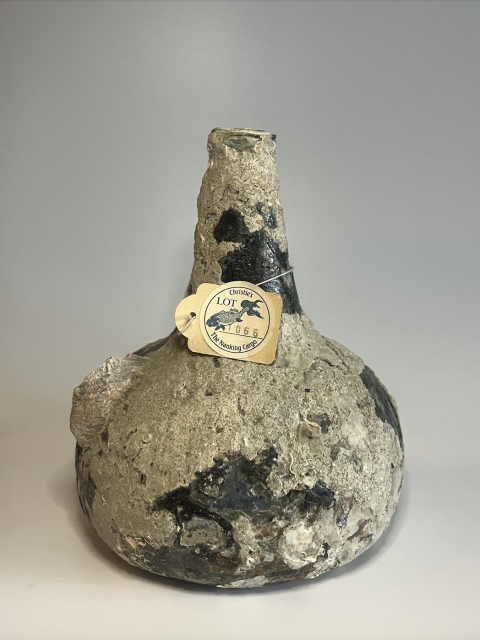This website uses cookies so that we can provide you with the best user experience possible. Cookie information is stored in your browser and performs functions such as recognising you when you return to our website and helping our team to understand which sections of the website you find most interesting and useful.
Shipwrecked wine bottle from 1752 on auction for £300
An antique wine bottle from the ‘Nanking Cargo’ raised from a shipwreck in the depths of the South China Sea is due to go on sale in London on 8 November, with an estimated selling price of £300-£500.

The bottle was aboard the Dutch ship Geldermalsen sailing toward Europe to transport porcelain from China when it struck a reef in January 1752, and was lost to the seabed until being rediscovered in 1985.
The cargo, which was recovered by British explorer and marine salvor Michael Hatcher, was initially sold in its entirety at Christie’s Amsterdam. It has since dispersed around the world.
Roseberys auctioneers is offering the shipwrecked wine bottle in its Chinese, Japanese & South Eastern Asian Art sale, and has estimated it to sell for £300-500.
Bill Forrest, head of department, Chinese, Japanese & South East Asian Art at Roseberys London, told the drinks business that much of the artefact’s value is “historical as opposed to monetary”.
“Though this shipwreck was most famous for the Chinese porcelain being transported, this bottle of wine is understood to have been enjoyed by the vessel’s crew,” he said.
“Dutch onion wine bottles of this age can go for relatively little, depending on condition, and given this one is covered in a sea of barnacles and shells– it requires a specific buyer, one with an interest in the wider story of the Nanking Cargo porcelain. We hope that the enduring appeal of the infamous shipwreck, and this most unusual bounty, will appeal to buyers.”
Forrest stressed the “fascinating” nature of discoveries like this one, as “they give a glimpse into trade routes of the day, and as such an intriguing insight into the history of international trade”.
Explaining its context, he said: “Part of the Dutch East India Company, the endeavours of the Geldermalsen were essential in establishing mercantile relationships between East and West.”

